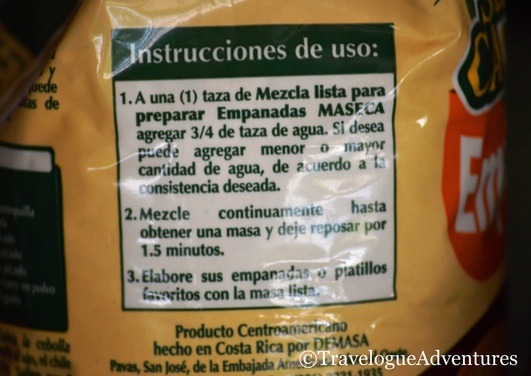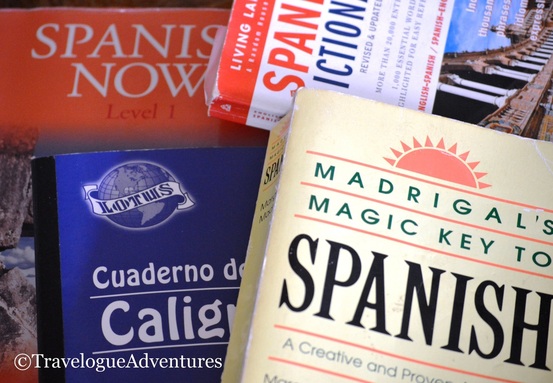We’ve been living in Costa Rica for about four months now and are really starting to adjust to daily life here. We have a routine for work, have figured out what to eat and how to cook it, know where to go to run errands, and are even getting to know some people in town. There’s one area though where we still have a long way to go: learning Spanish.
Matt and I both took French in school thinking it would be good to learn since our grandparents are native French speakers. But despite what people say, knowing the basics of one romance language doesn’t always help you learn another. When we got to Costa Rica we were more or less starting from scratch. We did take an intro course back in the States but that only got us as far as, “Hola, me llamo Jenn” (Hello, my name is Jenn), “¿Dónde está el baño?” (Where is the bathroom?), and “Queiro una cerveza, por favor” (I’d like a beer, please)—many of the essentials indeed and probably good enough for vacation but certainly not enough for living abroad.

In researching our big move, two pieces of advice kept coming up again and again. The first was not to buy a house for at least a year so that you’re sure you want to live in Costa Rica long-term before committing financially. That is invaluable advice that we are living by. The second was to learn Spanish for the obvious reason that it will be very difficult to immerse yourself in the culture if you can’t communicate with the locals. We have found this point to be true as well.
Although many people in Costa Rica speak at least some English, many do not. Don’t get us wrong, we don’t expect people in Costa Rica, a Spanish-speaking country, to speak English. There are times, though, when you’re trying to get something important done and there is no one around who can understand you. Bigger institutions like the bank and ICE (the electric company) and businesses in the larger tourist towns usually have someone who speaks English. But sometimes when you really need to do something, there won’t be anyone, anywhere, to help, and it will be just you, feeling ready to crawl under a rock and saying, “No entiendo” (I don’t understand) and “Lo siento” (I’m sorry).
One of our most memorable lack of Spanish moments was when we needed to get documents printed. We left for Quepos feeling well prepared for the task at hand. We knew which of the 50 plus tiny businesses to go to after stumbling into the store one day looking for some stationary. We had put all of the documents we needed in a separate folder on our zip drive, clearly labeled with the Spanish word for folder, “carpeta.” We asked the woman working to print the three documents in Carpeta Uno, using our Spanish words, and she seemed to understand. A few minutes later, she came back with only two. After spending several minutes trying to communicate with her about the third document, in front of many Spanish-speaking customers, we finally got it. This is just one of the many times we wished we had more words in our Spanish vocabulary.
Even with small failures though, we’ve been studying a lot and are definitely making progress. Every morning we spend time with our Spanish libros (books). I use a traditional style book called Spanish Now and Matt likes Madrigal’s Magic Key To Spanish, which has a totally different style. We also try to fit in some time at night with interactive learning tools like Duolingo. And then there’s Spanish movies for when we want to do something a little more fun. [Check out this post for our favorites.] At this stage, we usually only pick up a word or two but hearing the words and seeing the translation in subtitles seems to be helping. Of course every opportunity we have to practice with an actual person, at the grocery store, in town, at a soccer game, with the gardener, we take full advantage.
Thanks to all of our hard work, we do have the basics down but have a long way to go before we are conversational. On the upside, we’re extremely motivated because we know how important it is. After all, how can you really feel at home in a country if you don’t fully understand what’s going on around you?
* * *
We’ll keep you updated on our progress. Looking ahead, December brings us to Puerto Viejo on the Caribbean side of Costa Rica, where some of the locals speak a Creole-English language with Jamaican roots. But don’t worry, there are plenty of Spanish speakers too. We’re also visiting Panama for a week, which should provide lots of opportunities for practice. Until then amigos, ¡Pura vida!
What do you do to learn Spanish?
Post by: Jennifer Turnbull-Houde & Matthew Houde

